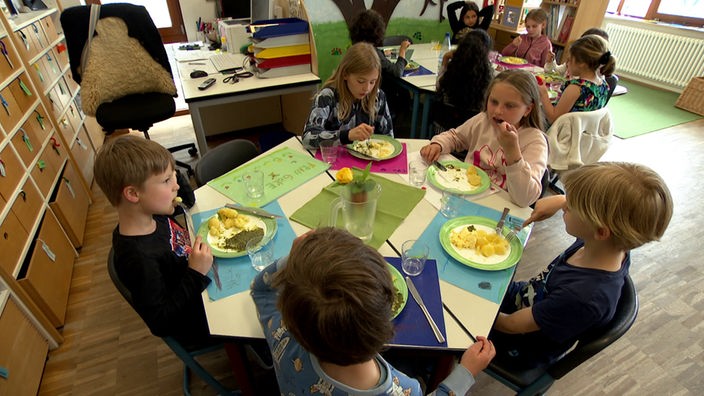The green-black state government of the CDU and the Greens has promised parents and children in North Rhine-Westphalia better all-day care at elementary school. The state government had planned a law that would guarantee a secure entitlement to all-day care in schools. This law would not only relieve the burden on parents, especially mothers, and enable them to better reconcile paid work and child care or have a little more free time in their stressful everyday lives, but would also guarantee children better educational and extracurricular support. In general, the law would also make a positive contribution to the otherwise increasingly overburdened school system.
The state law was originally planned as a necessary addition and complement to the federal law passed in 2021, which formulates a legal entitlement to all-day care in elementary school. The law would be implemented from the 2026/27 school year when first-graders start school and would then be gradually introduced up to fourth grade by 2029/30. The law in NRW should then regulate how all-day care is to be implemented and by whom, and which content and care standards must be taken into account when filling the positions.
Instead, the state government is breaking its promise to parents and children in the state and is merely limiting itself to so-called "guidelines" that do nothing more than reproduce the legal entitlement of the federal law and regurgitate the status quo. An all-day place will comprise eight hours per school day. According to State Education Minister Dorothee Feller, how this will be implemented and who will be responsible for providing care will be decided locally.
In practice, this means that local authorities and schools are left on their own and will have to worry in the German bureaucratic jungle either in cooperation with external youth welfare organizations or on their own and with state funding to offer an all-day program for eight hours. As there is already a major shortage of staff in the education and social sector and schools are competing with each other for funding and staff, this will lead to an educational and organizational patchwork - especially in times of a crisis policy that cuts the social budget wherever possible. Different youth welfare providers will offer services of varying quality and with underqualified staff because the minimum qualification has not been regulated by law. The end result is that all-day care will be more like child custody, as is the case in many daycare centers, and will not be a pedagogically rich form of support. In addition, there are no regulations on the minimum and maximum size of the groups to be cared for, which should mean that not every child who is entitled to an all-day place will get one, because it is unclear whether the state will be able to meet the demand for all primary school children within two years.
The question of why the state government has not managed to pass a law after three years is probably of a financial nature. The bourgeois opposition parties in parliament also see it that way. In the last few days, over a thousand pupils in NRW took to the streets to demonstrate for more teachers, better education and participation. There you often heard the slogan " For armament they are fast, for education they do nothing!" and that is exactly right. There is money for the armament of German imperialism and the development of the German monopolies. They do nothing for health, social affairs and education. The children are passed on from custody to custody to the end of their school career and the parents are left in the lurch. The mothers, who are forced to provide the extra childcare passed on to them due to patriarchal oppression by the bourgeois state , will once again bear the brunt of this. Another good reason for students, parents and teachers to take to the streets together.











